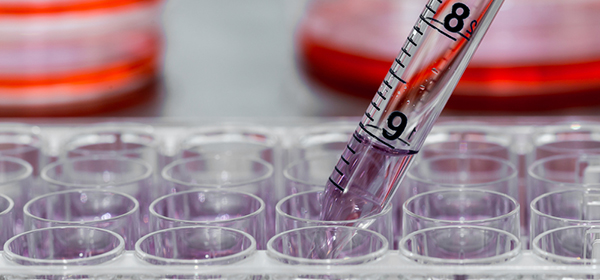Researchers at the University of New South Wales have developed a new system that could dramatically reduce the cost of cancer treatment by washing the blood clean of cancer cells.
This new system takes the form of a “biochip”, which filters the blood of cancer sufferers to identify and remove cancer cells from the bloodstream in what is being termed as “dialysis for cancer”.
The system was initially designed as a less expensive and less painful way to diagnose cancer. Currently, identifying a tumour involves expensive scans and painful biopsies.
About 99 per cent of human cancers are solid, but these masses can shed circulating tumour cells into the bloodstream, which is how cancer can spread throughout the body.
Dr Majid Warkiani and the team at NSW University created the biochip in order to separate these cancerous cells from healthy cells.
“We are simply getting the blood from the patient, it’s a mixture of normal blood cells and cancer cells,” said Dr Warkiani. “We put it inside one of our biochips and the cells go under migration, and they get affected by hydrodynamic forces.
“Under those forces that we are applying to the cells inside the chip, the bigger cells go up to the cancer cell outlet, and the smaller cells get pushed down and essentially they get fractionated, they get separated.”
It is hoped that the chip will not only be used to diagnose the cancer, but also to significantly reduce the cost of treatment.
Currently the cost of a tumour scan is around $700 per scan. But with the use of the biochip, these costs could be reduced to between $50–$100.
But scientists are now looking for other ways in which the biochip could be useful for more than just diagnosis. It is believed that the chip could be upsized to wash a patient’s own blood of cancer cells, then returned to the body, similar to the process for kidney dialysis. This, in turn, could extend the lives of people suffering from cancer, as well as having the potential to save those who have gotten over the insidious disease from relapsing.
According to Dr Warkiani, all that is needed is proper funding and support, for the biochip technology to be in service around Australian hospitals within two or three years.
So far the team has applied for government funding and been knocked back six times in less than two years. Although Dr Warkiani is hopeful that recently flagged funds intended for innovation will give them the money they need to get this project off the ground.
“We should find a new way, and I believe that this is a new way to do cancer management,” he said.
Read more at www.abc.net.au
What do you think of this innovative system to diagnose and treat cancer?
Related articles:
Cancer can be a result of bad luck
Cancer: what tests to have and when to have them
Cancer: life-saving cancer drug available

